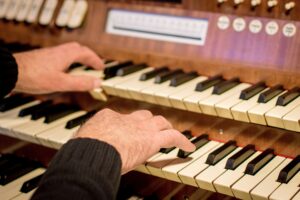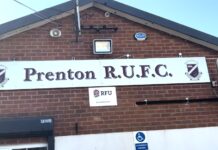Despite claims that the organ is a dying instrument, one leading local organist believes that this musical art form will endure as a result of national schemes and fresh interest.
Last month, MerseyNewsLive spoke to Rachael Belderbos, an organist from the Wirral who expressed her concerned belief that the instrument, most commonly found in places of worship, faces a decline.
However, Glyn Môn Hughes – St Saviour’s Oxton Director of Music – has shed some light on the measures being taken to preserve the longevity of the organ, while acknowledging that securing its future won’t be easy.
Glyn began playing the organ at the age of 13, after a seven year period of honing his skills on the piano – a step which he reveals is key to mastering the former.
“You need about Grade IV competence on the piano which is reasonably advanced and gives you the co-ordination with your hands before you think about using your feet.”

There exist several barriers that can dissuade new musicians from taking up the organ. Glyn explained these can vary from practicality to a predetermined idea of instant gratification.
“The organ is not a portable instrument. It’s not like a flute or violin or guitar which you can carry with you easily. You have to go to the instrument.
“A lot of people think that playing an instrument is either a gift with which you are born (not true!) or that it takes a matter of days before you are highly competent. The reality is it takes years.”
The Coronavirus pandemic and consequent nationwide lockdowns sparked debate over how careers in the music industry were publicly perceived.
For Glyn, playing music – and the organ in particular – is very much a monetised profession, demonstrating that a demand for the services of someone skilled in playing said instrument is still prevalent.
He said that around 45% of his total income came organ concerts and events, and that percentage was still growing.
Glyn says a variety of organisations are in fact making efforts to make the organ more accessible: “There are all sorts of schemes run by the likes of the Royal College of Organists, the Royal School of Church Music, the various conservatoires around the country and so on.
“There are young people taking up the instrument and there is a brilliant generation of young recitalists coming up.”
Glyn concludes that organ playing as a musical art remains a long way from fading into obscurity: “I think the reality is that it is not really a dying art and that perception is not always aligned to reality.”
Watch Mathew Markey’s video report:
Featured image (c) Harriet Belderbos









